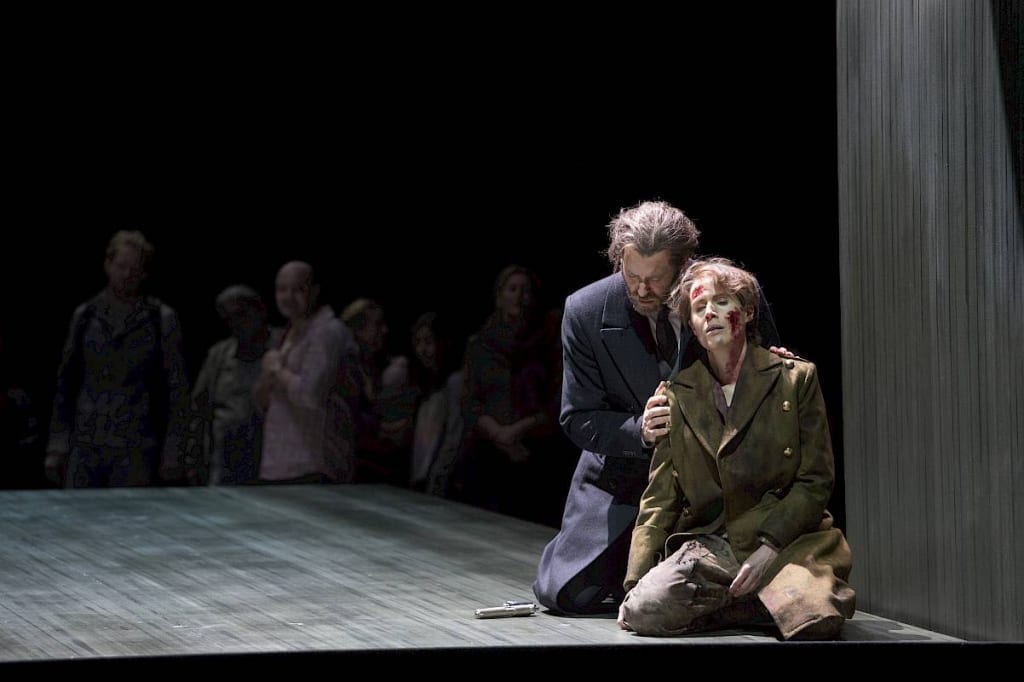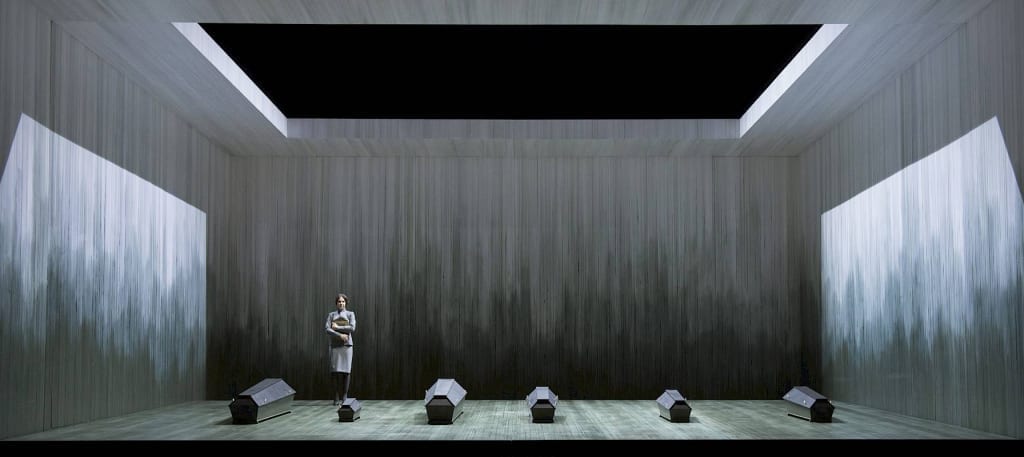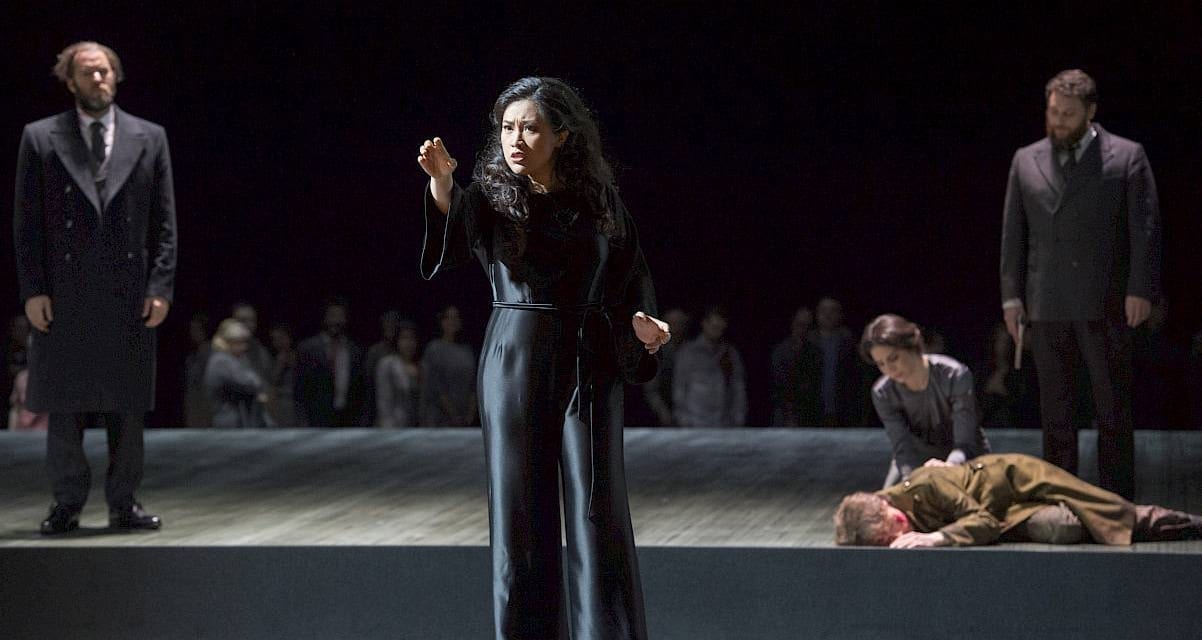What makes a story still so relevant even though it’s a part of ancient legends that have their origin over 3000 years ago? It’s the identification with the characters and their struggles that fascinated Mozart when he set the tragic story of the Greek king Idomeneo to music, according to Jetske Mijnssen. The Dutch director clearly sets the focus of her interpretation around the inner conflicts of the characters and sees the ancient story only as some sort of a framework. Idomeneo is forced to sacrifice his own son in order to save himself from the wrath of the god Neptune. Mijnssen sees Neptune as an imaginative projection and part of the trauma from Idomeneo’s time in the war. She manages to find a whole different view of the story and creates images on stage that can move an audience as well as make them think about what they just saw. When, at one point of the story, a cruel monster is tyrannizing the country, Mijnssen brings innocent children on stage, marked by war and we realize that this monster is nothing else than the war which is devastating the country. For this courageous interpretation, the audience rewarded Jetske Mijnssen, as well as her phenomenal team (Gideon Davey, staging and Dieuweke van Reij, costumes), with thunderous applause.
Such a concept requires acting skills and the capacity to show a physically broken character without making it exaggerated. The real main character is the omnipresent choir. The Chor der Oper Zürich (Rehearsed by Ernst Raffelsberger) impressed with an astonishing force and through creating grave and heartbreaking images of people devastated by the war. Every singer seemed to tell his own story, but they were still in perfect balance with each other (a special bravo to a great sung duet by Martha Villegas and Anna Soranno).

From the first pianissimo phrase, she sung at the beginning of the opera Hannah-Elisabeth Müller conquered the audience’s hearts by giving the tragic character of Ilia a voice which was perfectly made for this character. She elegantly negotiated the difficult passages, while preserving so much passion. I’m sure the opera world will hear more from this talented young lady. Another young singer who is on the way to a big career is Airam Hernandez who sang an impressive Arbace. Guanqun Yu surprised not only with a sublime voice but also with stunning acting skills and gave her character of Electra complete new facets. Anna Stéphany’s (Idamante) voice has become so rich and warm over the past few years and filled the hall without much effort. She used Mozart’s verbal and melodic repetitions to suggest shifts in psychological perception and meaning. Stéphany’s formidable technique made her big aria “Il padre adorato” into a highlight of this evening. For the role of Idomeneo, the Zurich Opera hired Joseph Kaiser, a singer with such an experienced voice, who was definitely ready for the sophisticated part of Idomeneo. Kaiser even chose the difficult coloratura version for his aria “Torna la pace”, where he could show many facets of his rich tenor.
The Philharmonia Zurich took up the challenge of playing the whole opera on period instruments. Giovanni Antonini maintained an excellent pace and sense of momentum, even when the libretto is one set piece or aria after another in Act 3. The Philharmonia Zurich’s playing was vivacious, with lovely colours, especially from the woodwinds. Despite the fact that the different sections of the orchestra harmonized perfectly, the connection between the pit and the singers on stage was sometimes missing. And I think that’s the reason why the audience wasn’t fully able to enjoy the opera’s combination of a profound story and a music which is supposed to perfectly fit all the emotions on stage.


